by Yoav Limor
Effi Eitam can no longer remain silent over what he sees as Israel losing its principles and character, and especially over what he is convinced is a looming internal threat that we may already be too late to stop.
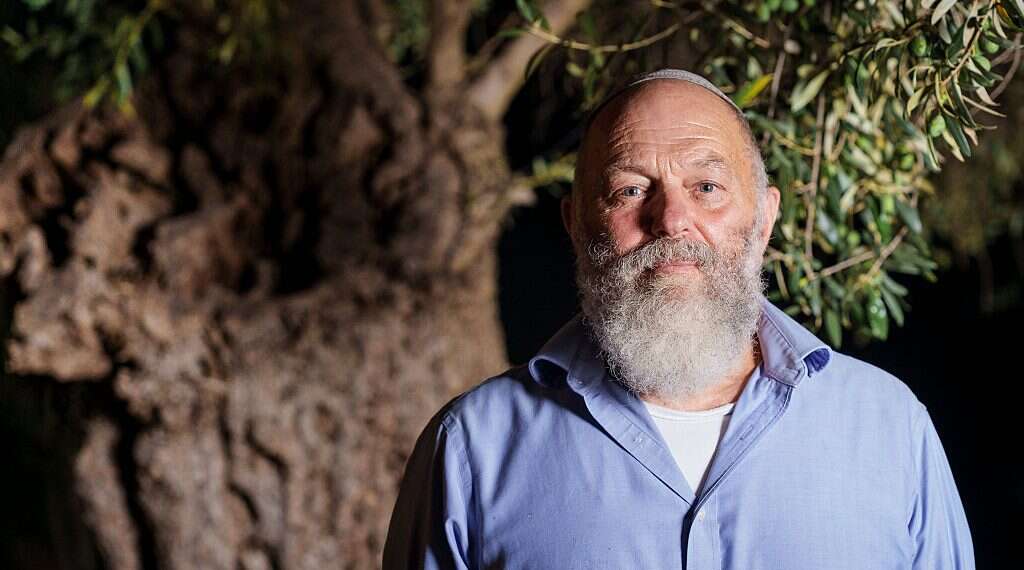 |
| "We are in danger of assimilation within ourselves." Effi Eitam, Aug. 10m 2021 | Photo: JINI/Ancho Gosh |
Effi Eitam cannot seem to stop fighting. At 69, the retired brigadier general says he is now waging war to save his home, or as he puts it, "A war against the mighty forces placing Israel at risk."
To this end, Eitam, never a shy officer or politician who has been consciously silent over the past few years, says he can be silent no more, and after several years in the private sector, it is clear he's eyeing the public service again.
"The discourse taking place in Israel today is superficial," he says. "There's talk about identity, not substance. You're either pro-Netanyahu or pro-Bennett; a leftist or a rightist. This type of discourse is nonsense, even if said nonsense was said by an ex-president.
"The real, deeper debate is between what is internal and what is external. When the external takes over, you become hollow. And what we are seeing right now is a huge, existential battle between inner and outer forces, with the latter becoming the essence. We are attending this endless party of ideas and identities – a show that is threatening our inner truth."
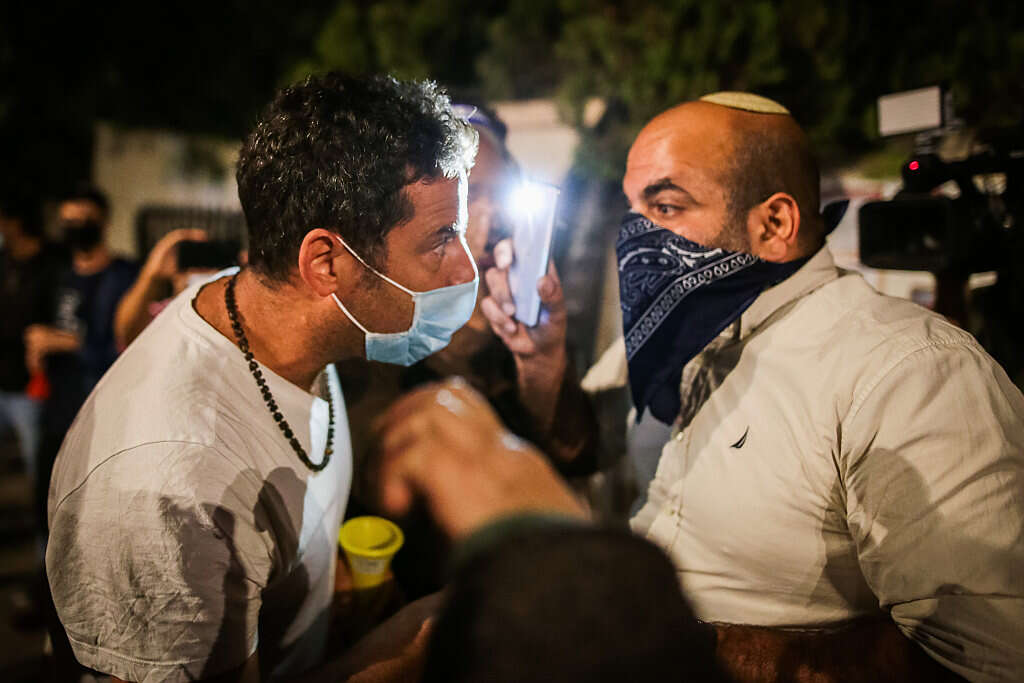
Q: Are you saying the country is in danger?
"Yes. We are in danger of assimilation within ourselves. Auto-assimilation. This tsunami that I am talking about erases all coastlines. The national, territorial coastline; the names, the languages. It has swept across all democracies in the Western world, overrunning their national identities and erasing all essence. Now it is also threatening us and the wonderful thing we have built here."
Q: How does it threaten us?
"I'll give you an example: One of the most distinctive characteristics of the conversation on national essence is the issue of borders. This is the struggle for our land, and we are suffering complete and utter defeat in it. Not in Judea and Samaria, but in the Negev and the Galilee. Israeli sovereignty has become mottled."
Q: Are we losing the Negev and the Galilee?
"Of course. We no longer work [the land], we're no longer farmers; we're no longer building. If the land is yours in essence, you working it and build on it. If it is part of the global world, what difference does it make who cultivates it?
"This battle sweeps us through us in all walks of life, and it happens because we have lost touch with the essence. It is evident everywhere. In the motivation to serve in the military, and even in the military's own willingness to take risks and pay a price in human lives. Spending billions on technology is fine but mostly it stems from the fear that when put to the test, Israeli society will not pass."
Israel's enemies, Eitan contends, "Recognize this weakness. When our essence was clearer, in the first decades of the country, our enemies were deterred. Not by military strength, because on that front, we were inferior in every classic military parameter, but by our substantial potency – the unity around the concept that this is our land and we will safeguard it and are willing to pay a price for it.
"In the past, we were clear about the conviction of our path because we knew where we came from and where we were going – toward a strong, very moral Jewish state that harnesses its past and present for the sake of its future. To get there, you can and must fight the thicket, but we made that the essence: what are we going to be about our politics, and what should be done with Israeli Arabs, and what the world is going to say. We have created a multifaceted problem here, and it has distracted us from our destination."
Q: And today we are big and strong, and our existence here is unquestionable.
"Great empires perished while standing strong and it was impossible to understand what brought them down. They were militarily and economically strong, but they disintegrated because of an internal loss of their way. Because of the inability to define their essence."
Q: Could this happen to Israel?
"Not 'could' – it's already happening. Zionism wasn't a point in time, it is the essence of the journey. It's the benchmark, the value by which we gauge whether we're navigating correctly or treading water. Today it's everything but that – a bunch of external ideas that say there's no difference and that everyone is the same."
Q: And isn't everyone the same?
"Of course not. Are you and I the same? Are men and women the same? Arab and Jews? No way. Israeli Arabs are citizens of the state, but they are by no means an essential part of the Zionist enterprise.
"I have many arguments against this government, but the fact that Israeli Arabs have become part of the country's leadership crosses a serious line in the internal-external struggle. Israeli Arabs have always been an external element. Not disregarded or humiliated, with rights – but external."

Q: An external threat?
"That's a decision for the external [element] to make. If it wants to take over the internal, if [United Arab List MK] Ahmad Tibi wants the State of Israel to lose its Jewish, national, Zionist essence, then he begins to become a kind of enemy."
The fact that Arab Israelis have "become a factor according to which the State of Israel lives or exists is a kind of absurdity that cannot be contained. When I send my sons – they're all still active reservists – and soon my eldest grandson to fight Hamas in Gaza, and the ideological Hamas sitting in government, it creates a very severe dissonance.
"The ideas pushed by of [Islamist Ra'am party leader] Mansour Abbas and by Hamas leadership in Gaza are the same."
Q: Is Ra'am a Trojan horse in the government?
"A Trojan horse is something you try to hide. This is a collapse of the understanding of the very essence of the State of Israel. Abbas isn't even a Trojan horse. He says, 'I am Hamas, and you, with your tax money, will fund the Hamas movement because you want to make political decisions on matters concerning you, the Jews."
Q: You're talking about one-fifth of the country's citizens. Wouldn't integration be a better idea?
"The discourse about integration is nonsense. It is a foreign discourse; a discourse of identities, not of essences. Israeli Arabs are not Jews, not Zionists, not partners in the virtue of our way. They should enjoy every human, civil, and legal right, but they will never be loyal partners in the essence of the State of Israel.
"Israeli Arabs have taken sides. They say so very explicitly. They are the internal Israeli political arm, designed to help the external, military arm [of Hamas], which is working against us. This is a vice grip."
Q: What's the solution?
"If a minority group, even a large one, uses the rules of democracy to undermines the essence of the state as Jewish, Zionist and national, then the rules of democracy must be treated in such a way that democracy does not kill the essence of the State of Israel."
Q: Should Israeli Arabs be denied the right to vote?
"Until now, there has been a consensus between the Right and the Left: [Arab Israelis] can exercise their civil right to vote, but they cannot be part of the government, the executive, and decision-making branch. As far back as the inception of the state, all Zionist parties understood that this change would create a head-on confrontation between our two essences –being a democracy and being Zionist-Jewish-national state. This is why they shied away from it."
This position, which according to Eitam "sought on the one hand to create reasonable channels of democracy for the Arab sector but on the other hand not make them partners in the leadership of the state, has been washed away. It's going to be very difficult to restore the status quo, and the price," he warned, "will change the state's identity."
Q: What happened to former PM Benjamin Netanyahu who legitimized the Arab parties by holding talks with them? And what happened to Prime Minister Naftali Bennett who included them in his government?
"Leaders are shaken by the external tsunami. It happened to [Menachem] Begin, it happened to [Yitzhak] Rabin, it happened to [Ariel] Sharon, and it happened to Netanyahu as well. Towards the end, he was shaken. But the idea with him was that they] Arab MKs] would support [the coalition] from the outside by abstaining [in votes] – it never occurred to him to make them part of the government, and I know that firsthand.
"Bennett will forever shoulder this disaster. Allowing Israeli Arabs into the government is equivalent to losing in a war."
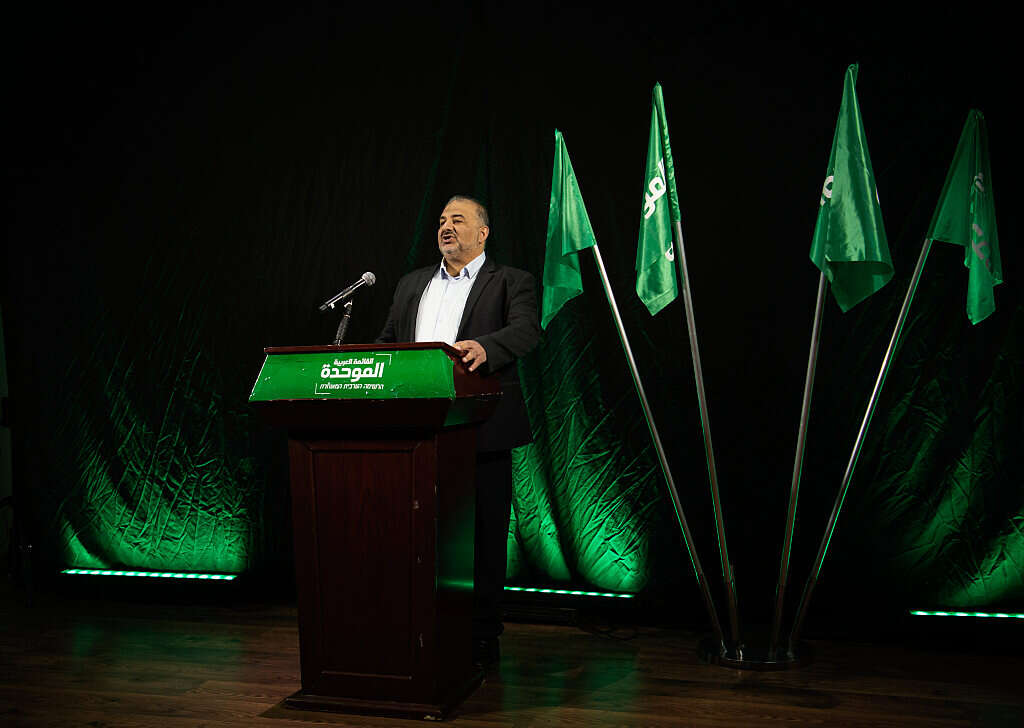
Eitam,69, is married to Illit, and is the father of eight and the grandfather of 34. He enlisted in the Golani Brigade, one of the IDF's elite infantry units, in 1971 and in 2001, after a string of senior positions, retired with the rank of brigadier general, after he was passed over for a promotion to major general, something he said stemmed from personal motives.
He joined the National Religious Party – the Mafdal- and in 2002 was named its leader, joining them prime minister Ariel Sharon's government as national infrastructure minister.
He led the Mafdal's exit from the government over the 2005 disengagement from the Gaza Strip, and later left the party, and eventually politics, in 2010.
The National Religious Party has had several reincarnations since Eitam's retirement: it rebranded itself as "Habayit Hayehudi" in 2008, led by Bennett. In December 2018, Bennett and his No. 2 Ayelet Shaked left the party to form the New Right, taking much of Habayit Hayehudi's electorate with them. As Israel entered a cycle of successive elections in 2019-2020 The latter formed an alliance with the New Right, branded "Yamina."
The alliance weathered through two election cycles, but eventually splinter into the moderate Yamina, led by Bennett, and the Hawkish Religious Zionist Party, headed by Betzalel Smotrich.
Eitam's Mafdal has all but ceased to exist.
Q: Could it be that what's happening now is because everything here has gone in an extreme direction? The National Religious Party, where you grew up politically, has taken a radical messianic direction. The ultra-Orthodox are also more radical. Maybe the events are a reaction to that.
"Within the Festival of masks and identities, everyone was blabbering on. What you and I do here has become very rare. The ability to sit, talk. I don't have to agree with your opinions but we can talk about them. Religious Zionism was supposed to be the core of the Zionist move. That didn't happen."
Q: You paid a price for your opinions. In the military and in politics.
"And I can tell you that it only did me good. At the end of the day, life isn't about how many titles or money you have but about who you were and are and what you did. In that sense, I've done well. I've spoken my truth without thinking about the consequences it would have on my promotion in the IDF or about whether it would make me acceptable in certain circles in the country. I've done what I believe in – that's how I live my life."
Q: Do you think you were denied promotion in the IDF because of your kippah and your opinions?
"My views have always been nationalistic, Jewish, Zionist, and forceful. They were probably feared, and most of the time used against me. The courage of one's convictions does not come from opportunism rather from the virtue of the way; from the understanding that there is truth in the world; that there is a right way and a wrong way and that everything doesn't revolve around some legitimate narrative.
"When you tell the truth, you have to be brave enough to know that you will also be criticized for what you say – and I'm fine with that."
Eitam says he spoke with Bennett several times before the government was formed.
"I told him he was wrong in assessing the external forces at work. These are tremendous organizational, financial forces, a large part of the world of media and academia. What could be used to counter them? It's not all about the number of [Knesset] seats. We must also have direction and convictions. This government has no direction."
The latter, he says, has led him to try formulating an alternative.
"Not a political one, at this point, but ideologically. The instinct of the loser is to storm ahead and try to retake power, even aggressively. But one has to get organized. Recruit people and ideas. This is what the Left did after losing power. It looked outside to the liberal world, and built a whole cadre of ideas."
Q: Do you consider the Left and foreign influences one and the same?
"Most Jews in Israel understand that without the Jewish-Zionist-nationalist idea, the whole premise of the State of Israel is meaningless. The Left is a very small group, engaged in injecting external ideas into Israeli essence."
Q: Leftists are akin to external forces that endanger the country?
"Heaven forbid. That's why I say that the struggle today is not between the Right and the Left, but between internal and external [forces]," he explains.
"Everyone who lives here and raises children here, and fights wars here, and cultivates the land, and brings tremendous high-tech success, is 'internal.' face. But there is a small minority that touts ideas that endanger us, like 'a state of all its citizens.'
"The whole world has lost its identity. These ideas flooded Europe and America. Europe has completely lost its identity, while in the US, the struggle is in full swing. [Former US President Donald] Trump expressed it, perhaps a little crudely, when he spoke of 'Make America Great Again.'"
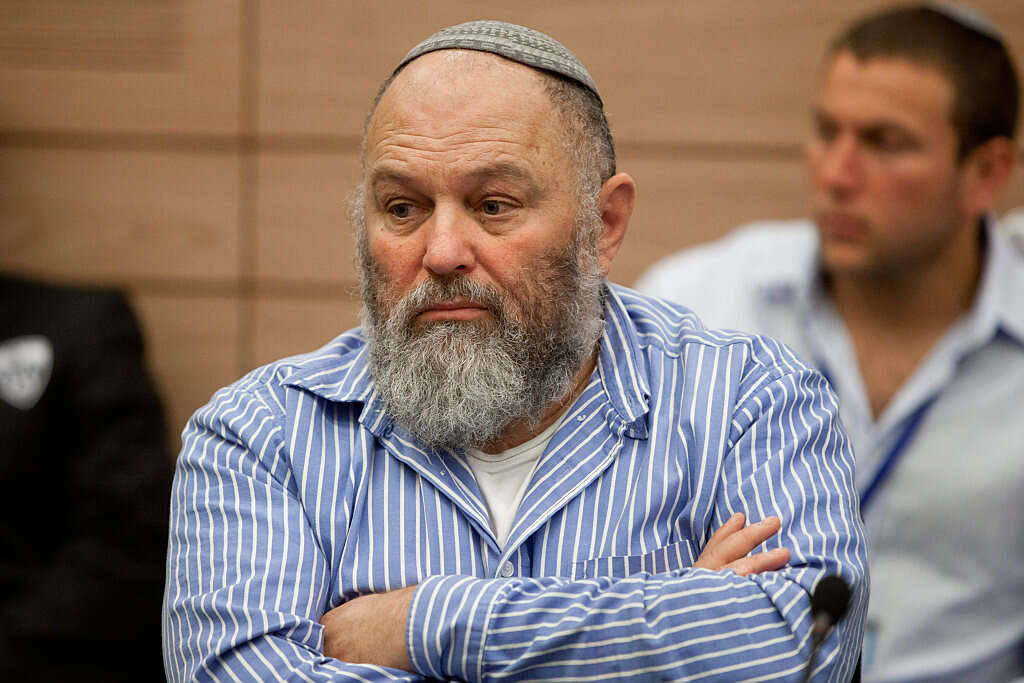
'Bolstering our enemies'
Eitam says the move he is most proud of in his career is the fact that he prevented a civil war during the disengagement.
"I was heavily criticized back then, but in my opinion, it was the most important thing of all."
He calls the disengagement itself a "crime against the residents [of Gush Katif], but mostly a crime against the truth. We were told that Hamas would engage in construction and rehabilitation and that everything would be reversible anyway, and that we could easily go back in and install order if so much as one rocket it fired at us," he recalls.
"We told ourselves the same story when we fled Lebanon," he says of Israel's withdrawal from southern Lebanon in 2000 after a 15-year campaign, "That we will flee, close the gate behind us and this lion will remain caged in Lebanon. What absolute nonsense.
"I told everyone who would listen that if we fled Lebanon, we would be bringing Lebanon here. Army against army, and we were better than them. We defended Israel and its citizens, leaving most of them out of the conflict. This is how a military should conduct itself.
"The same goes for Gaza. Until we fled we could contain this conflict, including in Gush Katif. At times there are extensions of Zionism – certain people who are willing to pay a price.
"This trick – flee, leave the area to hostile elements, fail to deal with their military evolution, and give their moral a boon – it's all fake. It's one thing if this was a reversible 'fake' but it has created dynamics that harbor an existential threat.
"We have become cowards, and this cowardice stems first and foremost from our inability to accept [the notion of] casualties, which is what stands the test of war - 'I am the only one, if need be, take my life for the sake of the nation, because it is worth it,'" he asserts.
"We are currently intensifying our enemies against all logic, as long as we are able to postpone the confrontation. Every chief of staff wants to roll this hot potato over to the one that follows him. Let him head a military operation, he can say that 'we showed them' and that without a political decision it is impossible to reach a decisive result. We have become so confused that we turn the disadvantage into an advantage. We are told that we actually need Hamas for stability in Gaza. "
Q: Would you aspire to topple it?
"Of course," Eitam states. "Hamas must be eliminated. I would give the military six weeks to finish this story. Enter Gaza, take control, collect the weapons, and then leave. We shouldn't control Gaza, but we must not allow it to have an armed regime that threatens us. "
Q: You would do that tomorrow morning?
"Yes. Today, sans a reason and without any warning."
Q: What about Lebanon?
"We'll have to do it in Lebanon. Wherever we're proactive – we're successful. Wherever we're dragged behind, from the [1973] Yom Kippur to date – we failed.
"The problem is that in the meantime, we have to deal with another front – Israeli Arabs. For over a decade now, they have been in the process of rebelling against Israel's sovereignty and authority. We have to call a spade a spade. I also suspect that they are building an army. Otherwise, why would they need 40,000 rifles, the majority of which stolen from the IDF?"
Q: Purchase for self-defense? There's anarchy in the Arab sector.
"We're buying into the criminal anarchy story – that's a minor story. Israeli Arabs today are armed to an extent that has nothing to do with any criminal threat."
Q: Building an army requires an organizing element.
"Building an army requires soldiers and weapons," he maintains. "In Arab society today you have more people with guns than all the infantry reservists Israel has. They have weapons at home and they practice. Anyone driving in the Negev or the Galilee at night can hear automatic weapons. This isn't a fantasy."
Israeli Arabs, he explains, "Work in gangs. Right now they are fighting among themselves. They kill and once you kill you cross the [moral] line. What's worse is that they generate deterrence. The fact is, the Israel Police is afraid to act" against them.
Q: When will this be turned against us?
"It's already being turned against us in terms of deterrence, and it was turned against us in the riots during Operation Guardian of the Walls. All the elements are in place: the weapons, the training, the will to kill, the formations, which may be a little different from army ones but they are loyal to them. In practice, Israel has no power there."
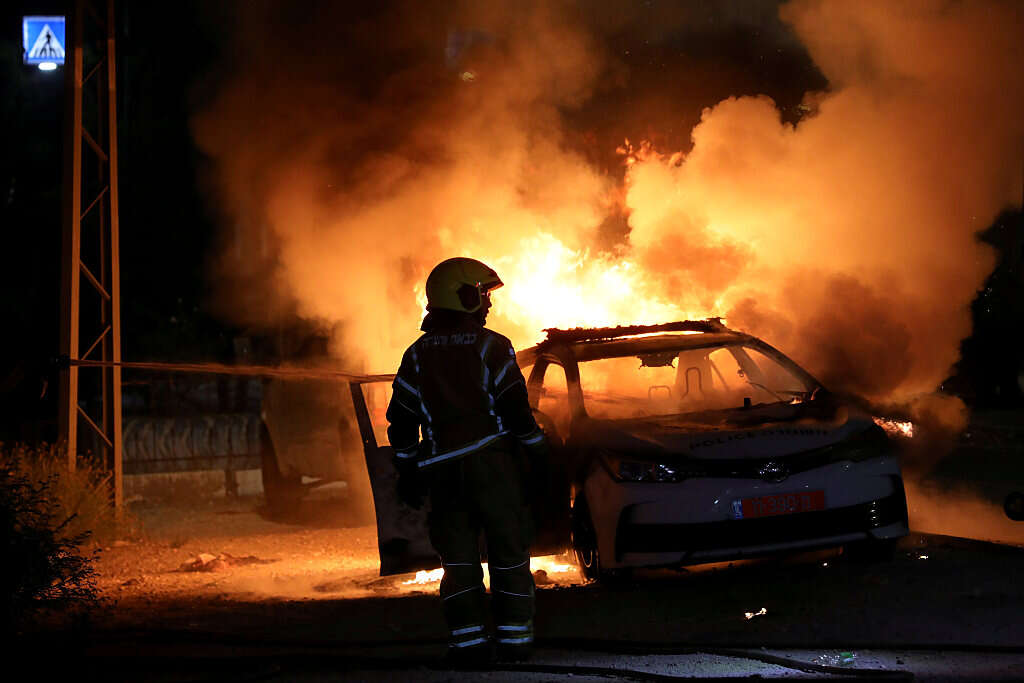
Q: What should we do?
"I prefer not to get into that. There are no simple solutions. But it is a dramatic problem that requires very firm and decisive treatment. To me, this problem of the internal Arab uprising is more complicated than all the external threats combined.
"Now they are part of the government, and in that sense, the Arab uprising has been granted immunity for a good few years. Ask anyone on the street, they will tell you that Israeli Arabs do whatever they want. We need to take action against it."
'It's not about me'
Eitam is profoundly concerned by what he sees as the IDF's "lack of desire to fight" and "Israel society's waning willingness to pay a price."
"We have been devoid of victories for many, many years. The experience of battle, of sacrifice, is moving away from us, and if they happen somewhere, it is usually more a recipe for disaster than a prescription for victory.
"Decision-makers also know that we will be unable to emerge from a major military event well. So either they postpone [operations] or they look for substitutes for risk in the form of technology, which is wonderful, but it doesn't win wars. Most ask for reality to impose some sort of action on them, so they can say they didn't have a choice."
Eitam believes that the IDF's fighting spirit has also been affected by the "external tsunami."
IDF officers and soldiers, he says, "Grow up in an environment of open communication, studying in military academies that have long been teaching nothing, and absorbing it. Look at what is also learned in places where the IDF is supposed to be educated, such as Yad Vashem. A place where I was declared morally incompetent to instill the memory of the Holocaust."
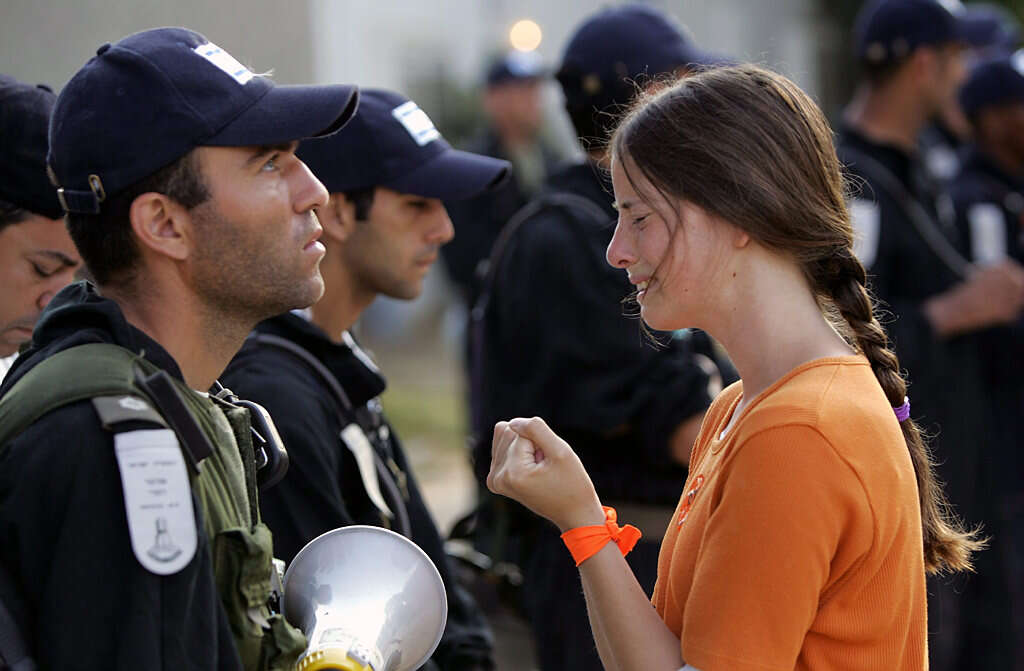
In 2020, Eitam was nominated to head the World Holocaust Remembrance Center, but the move met fierce opposition and elicited an international campaign that saw 160 professors and academics – most of them renowned historians and Holocaust researchers – as well as Holocaust survivors from various countries, petition against his appointment.
Citing his past statement about Israeli Arabs and the Palestinians, petitioners branded the possibility that Eitam would head the world-renown institute as "shocking" and "outrageous," and argued that it was "a political appointment that could have tragic consequences" for Yad Vashem.
"I don't want to whine but that's an indication of what I mean," he explained.
"Yad Vashem today erases every remnant of a specific Jewish issue. It has turns the Holocaust into a story of global evil. As if the Holocaust is a story of evil in the world, and the lesson of such evil is that we, too, can be a part of it.
"As a result, Yad Vashem, which is a very important and powerful arena in shaping our national awareness and our national security and resilience mind frame - is also growing weakening."
Q: Your nomination met the claim that "someone who's racist towards others cannot head an institution that fights ultimate racism against Jews."
"This is a false claim. It's like saying that anyone who tells his wife that he loves her more than any other woman inherently hates all other women. After all, any Israeli patriot who says 'my brother, my country, my home, precedes others' can be accused of being a racist. This is part of the lie purported by the external tsunami."
Q: So why the opposition to you heading Yad Vashem?
"Because Yad Vashem has positioned itself as an academic institution, and as such, it needs to receive accreditation from the academic world. The academic world doesn't accept that the Holocaust was the Holocaust of the Jewish people, rather that it was part of many Holocausts.
"A small number of people, who represent external forces by hold every position, do not allow and do not want to allow others in."
Q: Did you want the job?
"Absolutely. I was glad that the previous government approached me and I saw this as a great mission.
"One of the things that is an indication of our situation is that [then-Higher Education Minister] Ze'ev Elkin, who initiated this move, and Bennett and Shaked, who supported it and defended me at the time against various disparaging remarks, had a sudden change of heart when it became a political matter. No one called to say, 'We changed our minds, we decided you're not right for the role.' They just acted under the cover of night."
Q: Were you left on the proverbial side of the road?
"Yes, but I'm not talking about the affront, rather about the phenomenon. It was a vulgar thing to do."
Q: Deciding against your appointment is legitimate.
"Of course it is, but that's not who a government should conduct itself, nor is this the way for people who truly seek to mend fences [in Israeli society]- this is the way a gang conducts itself, having overtaken the helm and driving like mad."
"I think there is a huge public today that understands that we are being forced into matters that are completely foreign to us - cultural, security, economic, national. And the internal counter-tsunami to what is happening here now will arise. I don't know what will trigger it, but this huge crowd, which belongs to the 'inside' I'm talking about, will erupt. It will need preparation and guidance, and all sorts of other things that I am now dealing."
Q: Do you see yourself as the leader of what's coming?
"My personal interest is irrelevant. But I'm convinced that this truth will burst out. People are tired of this coercion. I sometimes feel like I'm living in some sort of intellectual inquisition. It's so intolerant and so contemptuous of the inner truth that people say to themselves, 'Enough, we're Jews and Israelis, and we want this country to be our country – not a state of all its opinions and citizens and ideas."
Q: And Bennett doesn't understand this?
"If I could give Bennett a warning it would be on this matter. This voice cannot and will not be silenced. It will crack every dome and every wall that stands against its Jewish-national-Zionist authenticity.
"Anyone who really wants to have a career in politics, beyond sitting with a small crown on his head and being prime minister for a while, should know that this voice is here, and it will erupt, loudly."
Yoav Limor
Source: https://www.israelhayom.com/2021/08/23/allowing-israeli-arabs-into-the-government-is-equivalent-to-losing-a-war/
No comments:
Post a Comment